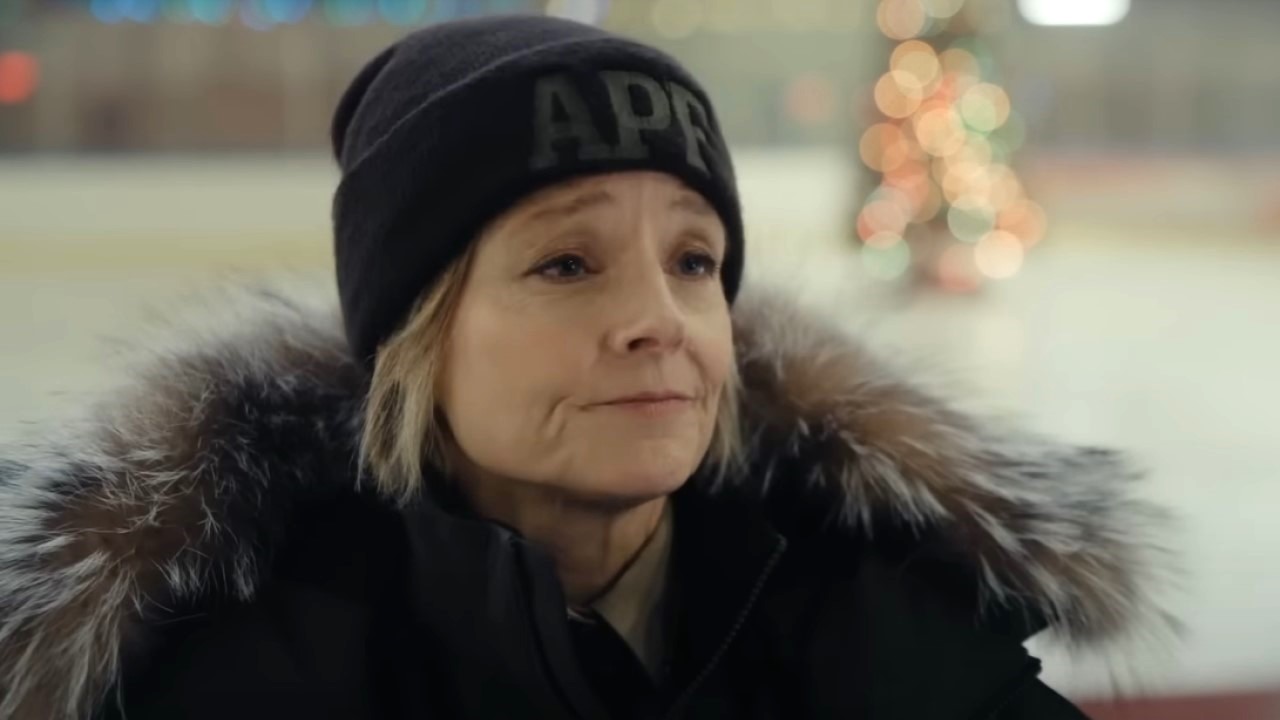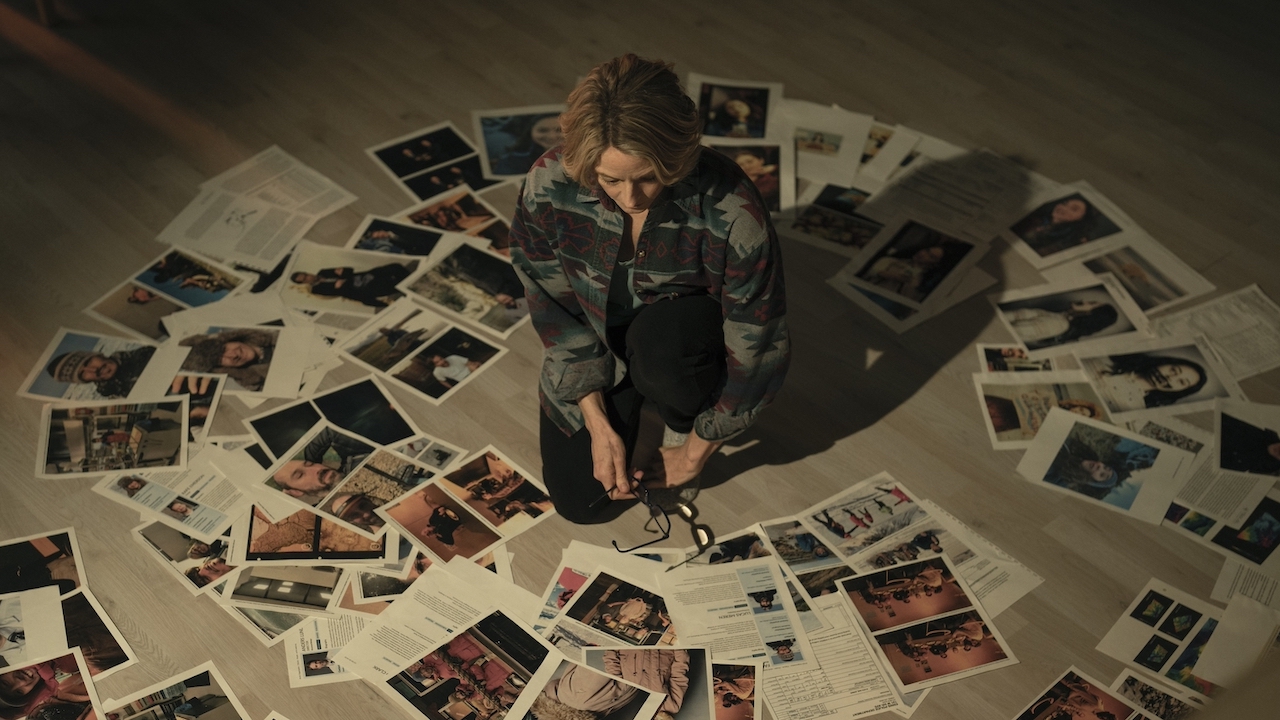
Spoilers below for the first two episodes of True Detective: Night Country, so tread carefully if you haven’t yet watched or streamed with a Max subscription!
With its first three seasons, True Detective played somewhat fast and loose with the connective tissue tethering the murder cases to the same universe. But the change in showrunner from creator Nic Pizzolatto to Issa López has allowed the horror-tinged mystery thriller to delve into the biggest series callbacks to date, which of course just inspires fans like me to rashly conclude that every seeming reference is a definite easter egg.
So even beyond the similar critical responses, let’s run through the obvious and probable parallels between Jodie Foster’s Night Country and the debut season with Matthew McConaughey and Woody Harrelson leading the investigation. (Totally understood if some want to watch True Detective Season 4 while going through the list.)
Travis Cohle Is Almost Definitely Rust’s Father
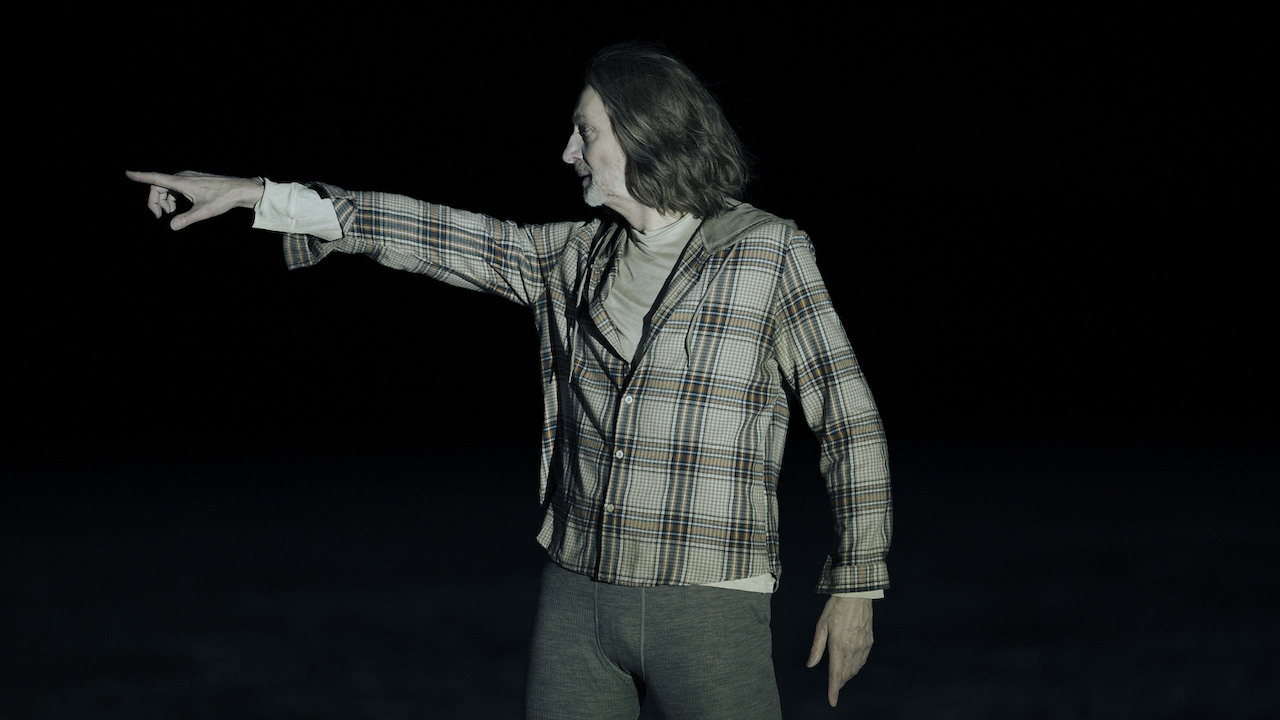
Barring a baffling narrative reversal, True Detective: Night Country’s second episode appeared to relatively quickly confirm the fan theory about Rose’s ghostly messenger being Rust Cohle’s father, though without ever flat-out declaring that he had a kid with a slow Texas drawl. But Rose did make it clear that his name is Travis Kohle, and that they had a romantic fling together ahead of his death due to leukemia. (She’s definitely not Rust’s mom, though.)
In Season 1 of True Detective, Rust’s limited input about his early life with his parents included the admission that his father got his mother pregnant while on military leave. He didn’t return from his Vietnam tour until Rust was already two years old, at which point the mom took off, with father and son moving up to Alaska. Rust eventually left, preferring the warmth of the Southern U.S. to the snow.
Perhaps most interestingly, Rust says his father was not pleased that he left, and said Rust lacked loyalty for making that choice. Why was Travis so obsessed with staying up in Alaska, though, and why was it a blow to familial allegiance for Rust to move away. Was living in that area partly responsible for Rust’s mental hiccups, and not the substance abuse issues as presumed?
The Tuttle Family Likely Funded Tsalal's Research
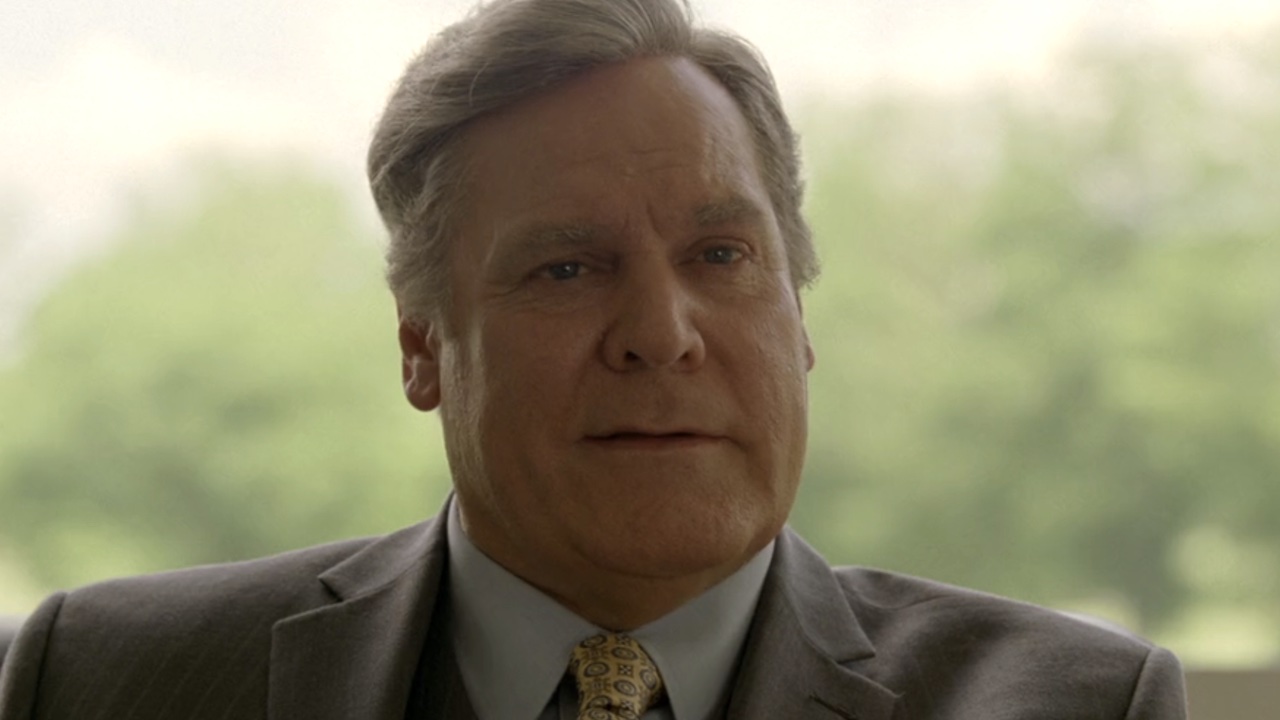
For all that True Detective telegraphed its Cohle connection, the show came out of nowhere with that wild reveal that Tsalal Research Facility is funded by a non-governmental organization run by the shell company NC Global Strategies. And who runs that company? A little outfit called Tuttle United.
Though not spelled out in full, the indication here is that Reverend Billy Lee Tuttle, or someone else within the cultish family, was paying for the reclusive scientists to crack the DNA code of whatever formerly ice-bound microorganism they were studying. But is this all directly connected to Errol Childress and Carcosa, or something even more sinister?
All Those Spirals
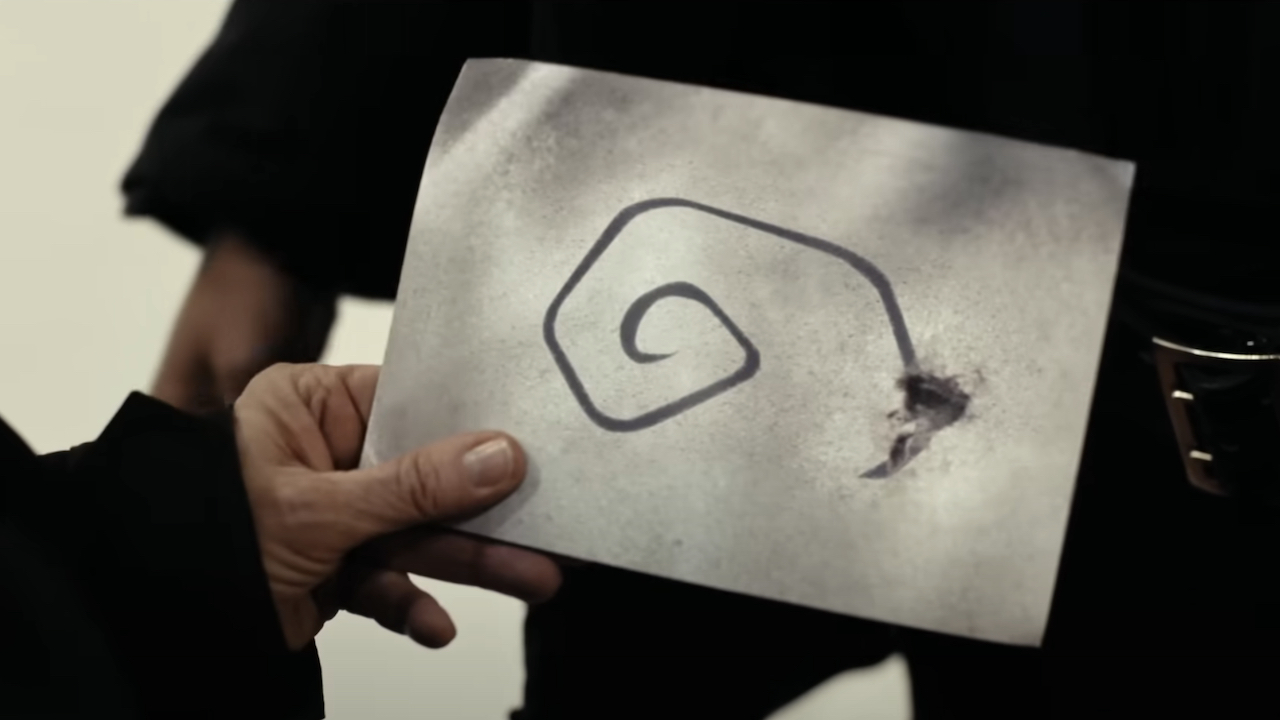
As True Detective viewers are aware, swirly shapes played heavily into the first season’s murders, with the “crooked spiral” symbol representing the occult, child-abusing, human-sacrificing cult at its center. The descriptor also came up in relation to pedophile rings during a brief Season 3 moment.
While the direct meaning behind it all still isn’t clear yet, we do know that the symbol was drawn (or inked or branded) onto one of the corpsicle scientists’ foreheads, and it was tattooed onto the murdered Annie K. and the AWOL Raymond Clark. As well, it was scrawled onto the ceiling of Clark's snowed-in camper, where a whole bunch of other weird shit came up. So it’s definitely a connective force within this story, but how much weight is there to Rose’s theory that the spiral is older than the ice surrounding Ennis.
Crafted Dolls And Writing On Walls
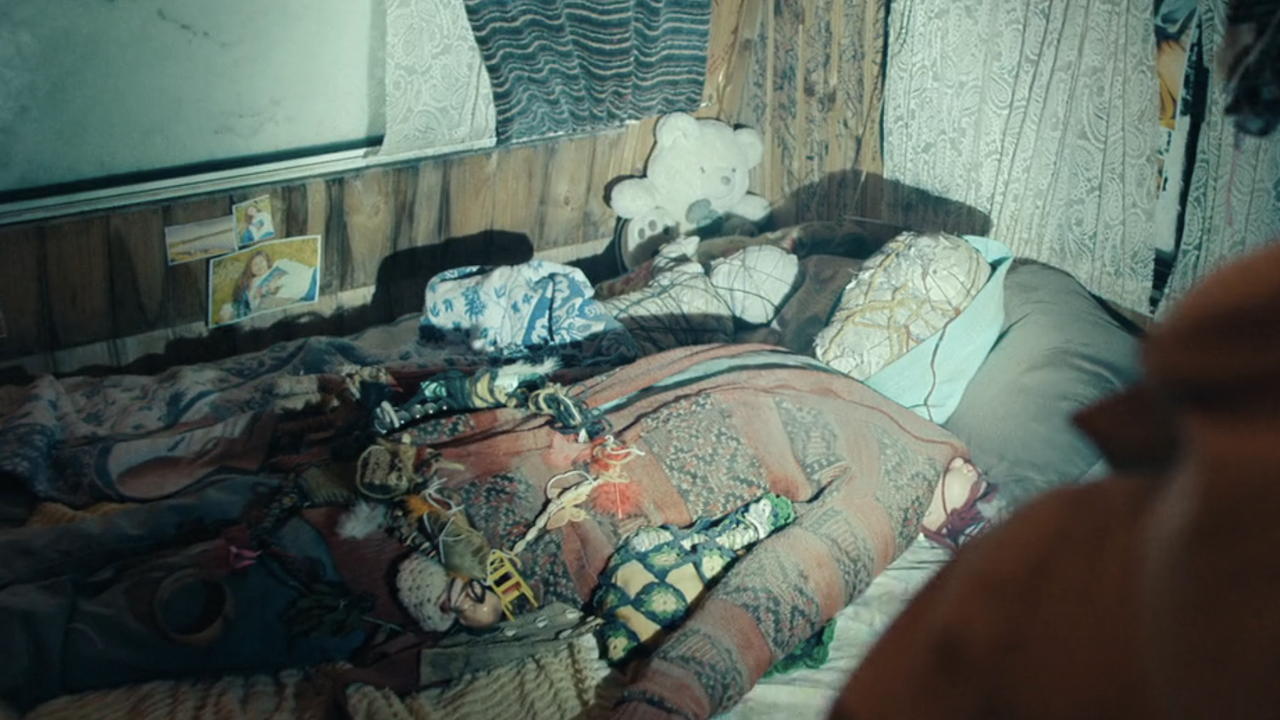
Season 1's backwoodsy occult vibes presented the perfect environment for handmade straw dolls, stick-people and other creepy AF craftwork. Other straw dolls surfaced during Season 3, but Night Country took it up to 11 when Liz and Navarro investigated Clark's camper.
The humble abode was all kinds of creepy and ominous, with an assortment of figures and shapes hanging from the ceiling, as well as a human-sized doll (presumably) laid out in the bed, surrounded by other garbage/art supplies. As well, much of the walls, ceiling, and cabinet doors were filled with the scrawls of a lunatic, often with the same phrasings repeated, but with enough variety to make it impossible to draw clear conclusions from.
Lots of references to a mysterious female entity, and lots of pleas for things to stop. As well as a big message saying "Don't Sleep," which could possibly be a super-loose reference to Rust Cohle being an insominiac.
The Hildred Castaigne Quote
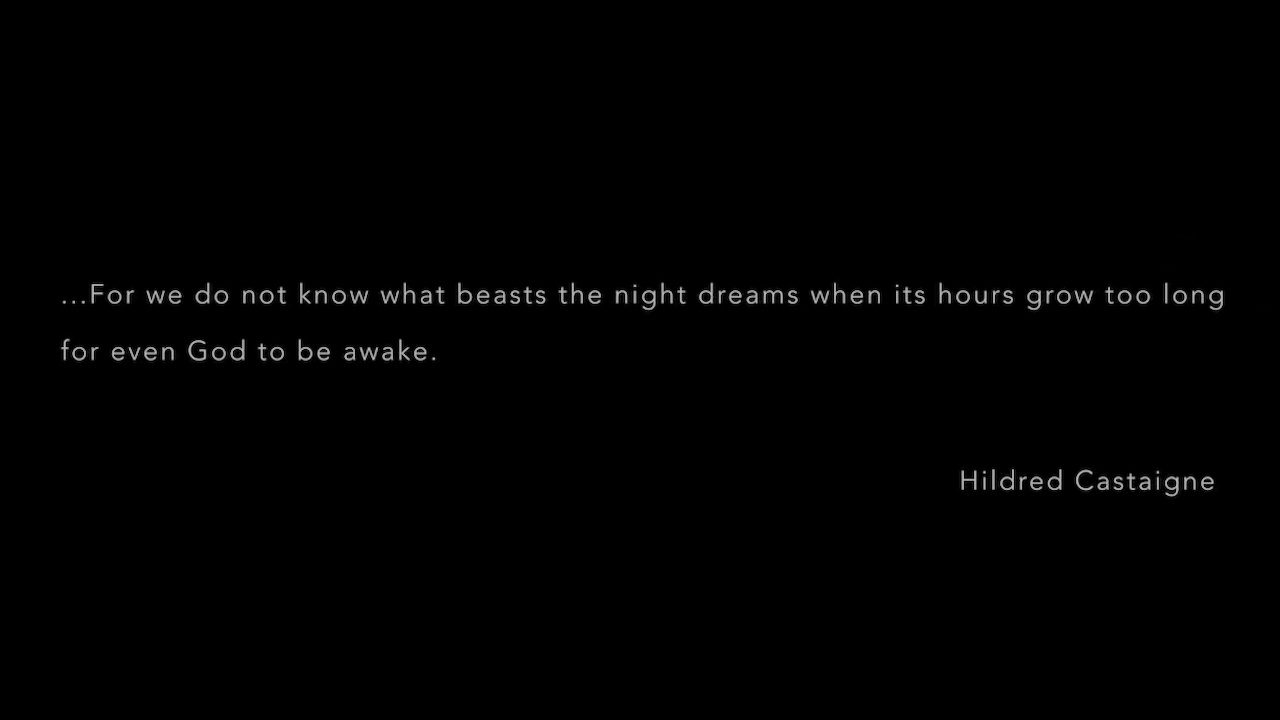
TV shows kicking off with textual quotes isn’t exactly new or rare, but True Detective: Night Country took an interesting swing by starting with a quote from “Hildred Castaigne.” He isn’t a historical figure, but rather the unreliable narrator relaying the contents of “The Repairer of Reputations,” one of the tales within Robert W. Chambers’ short story collection The King in Yellow, which is notably one of the first season’s core influences.
And what’s more, the quote isn’t even actually taken from the story itself, but was conceived by showrunner Issa López. So right from the opening seconds, the onion of references was already being formed.
Lone Star Beer
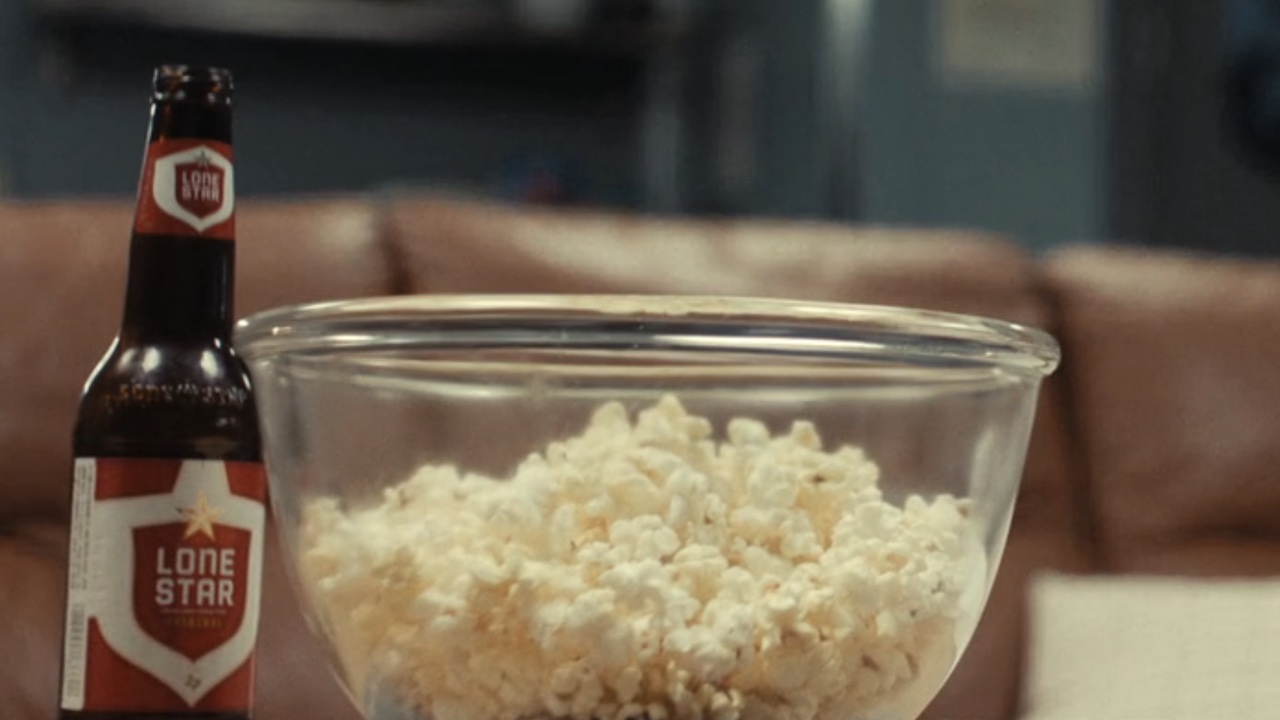
Perhaps the only visual callback to Season 1 that is largely just a visual reference, and not an opaque mystery wrapped in an enigma, is the sight of the Lone Star beer bottle within the Tsalal facility. It's on the living area table in front of the TV playing Ferris Bueller's Day Off, and is soon joined by the big bowl of popcorn before the unexplained inciting incident made everything go haywire.
One of the most memorable motifs from Season 1 was alluminum can art that Rust put together by ripping open and reshaping cans of Lone Star that he drank throughout his interviews with Dets. Papania and Gilbough. Harder to do that with a bottle for sure.
Both Danvers And Rust Lost Children (And Ruined Relationships)
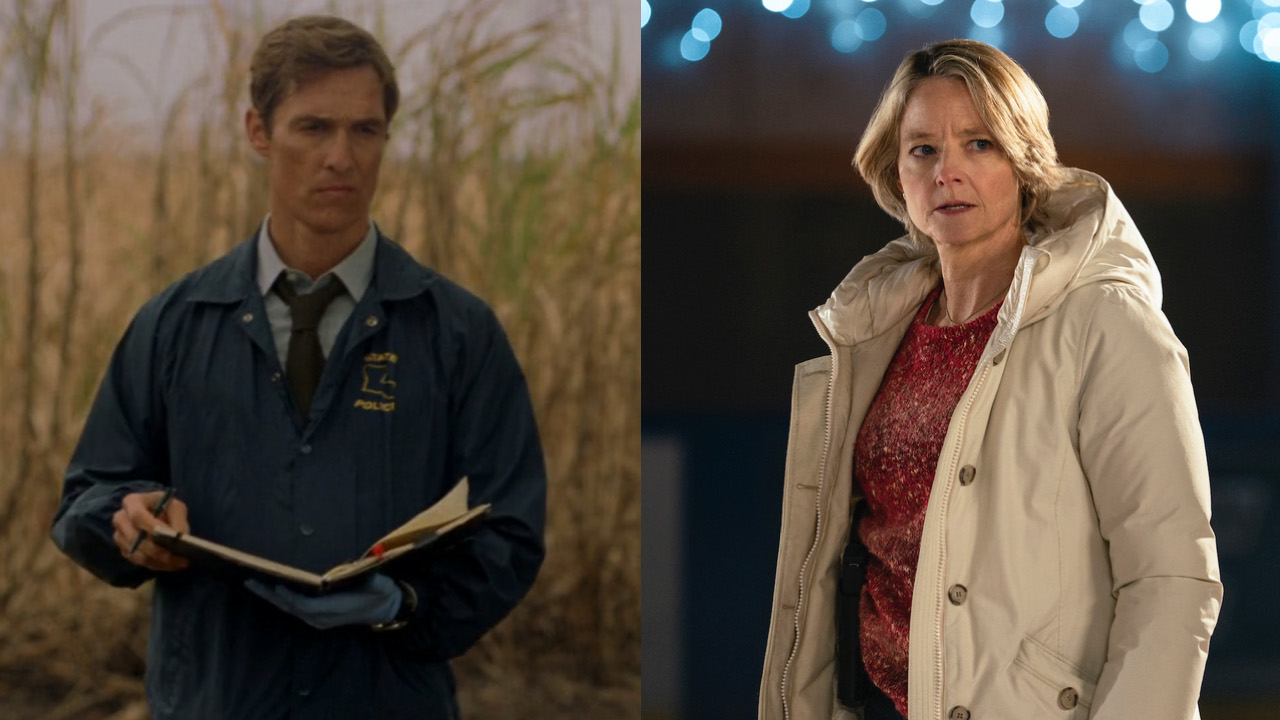
Might as well end this one on a dark note, since that's the True Detective way. Episode 2 of Night Country made it pretty clear that Liz Danvers suffered the heartbreak of losing a child at one point in life, and that it's the kind of memory that will send her off into the night to find a distraction. As well, the show is laying it on pretty thick that Liz has slept her way into and out of a few friendships, and has been banging her boss for the better part of the previous two decades.
On the flip side, Rust's marriage with Claire fell apart after the death of his two-year-old daughter Sophia, who was hit and killed by a car. His actions in the following years invovled undercover operations and addictions to controlled substances, and the self-destructive behavior never quite left his system, as evidence when he fractured his friendship and partnership with Marty by having sex with Maggie.
Stay tuned for new episodes of True Detective: Night Country every Sunday night on HBO at 10:00 p.m. ET, and streaming on Max.
